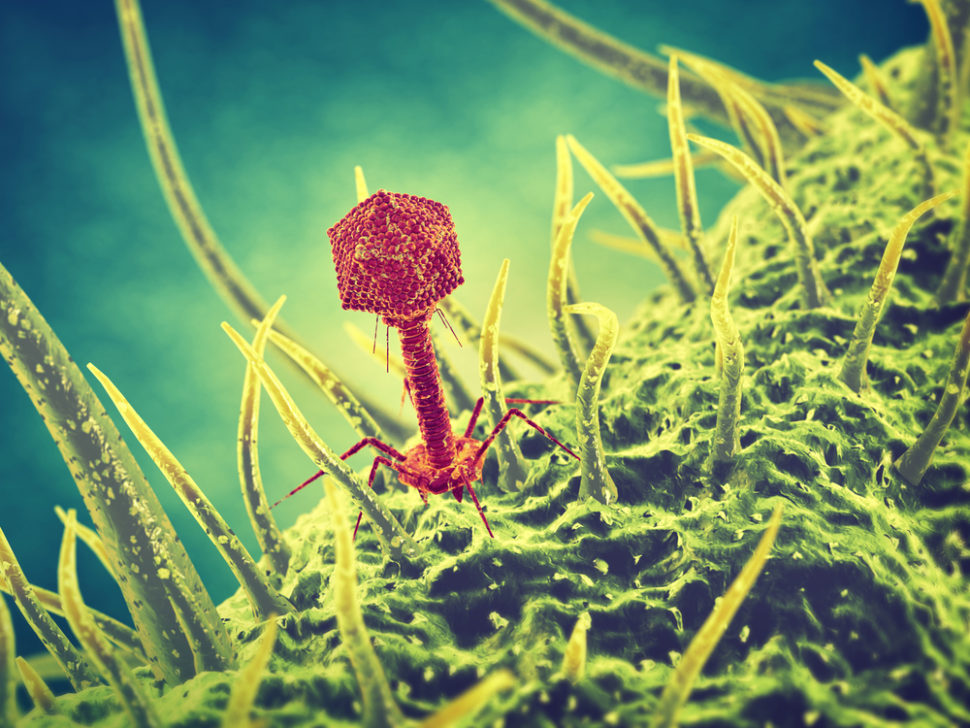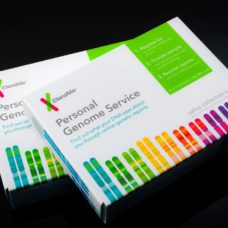Antibiotic-resistant superbugs have become a major public health concern. But what if there were bacteria-infecting viruses? It would be fair to make superbugs have a taste of their own medicine.
Well, now, there is. In the environment, wherever there are bacteria, we find their natural killers: phages, or bacteriophages.
Viruses to treat serious drug-resistant infections? Yes, that’s possible, but not with just any type of virus.
There are more phages on the planet than all other biological entities combined, including bacteria. They’re found almost everywhere, in the soil, water, and air, with hundreds of known types that target specific bacterial species.
Phages are wired to prey on bacteria. They infect them by injecting their DNA to hijack the bacterium’s genetic factory and produce more phages, killing the host in the process.
As the sworn enemy of bacteria, phages can be our last line of defense against superbugs.
While research into phagotherapy, or phage therapy, started long ago, it was abandoned as antibiotics were discovered and showed immediate efficiency against pathogenic bacteria.
Now, with the rise of antibiotic-resistant bacteria, phage therapy is in vogue again.
Phage Cocktail to Cure Superbug Infection: the Case of Isabelle Holdaway
While sometimes phages and bacteria can entertain complex and almost symbiotic relationships, it’s the simple model of predator and prey that’s most common and most interesting in this context.
If phage therapy has faded into oblivion in the West, some countries in the former Soviet Union have continued practicing phagotherapy.
But there’s a renewed interest in phages as antibiotics have exhausted their ability at treating superbug infections.
In a world first, a British teenage girl that had a 1% chance of survival was treated for a severe bacterial infection using a cocktail of bacteria-killing viruses.
First, doctors at Great Ormond Street Hospital, a London children’s hospital, gave 17-year-old Isabelle Holdaway less than a 1% chance of survival, then they tried something new.
They tried an untested “phage therapy” on Isabelle after all antibiotics have failed, and the result was “enormously exciting.”
Read More: Antibiotic-Resistant Superbugs: The Past, Present, and Future
It was Isabelle’s mother that suggested using phage therapy on her daughter after reading about it online, after doctors ran out of other options. For Isabelle’s luck, they identified the phage types that could infect and kill the bacterial strain that was wreaking havoc in Isabelle’s body.
A three-phage cocktail was administered to Isabelle intravenously and on her skin twice daily. Six weeks later, liver scans showed Isabelle’s infection was gone.
Now, the big question is whether other patients could benefit from such phage treatment. There’s no quick answer to that because Isabelle’s case wasn’t covered as part of a large clinical trial.
For starters, it’s hard to identify the right phages for the right bacteria, as there’s no one phage therapy fits all infections. But scientists think in the future there would be phage libraries that make it easier for them to set personalized phage treatments.



















Comments (0)
Most Recent